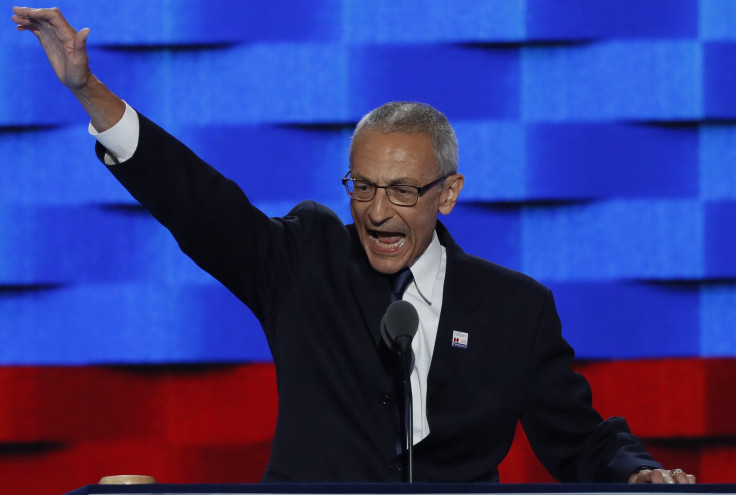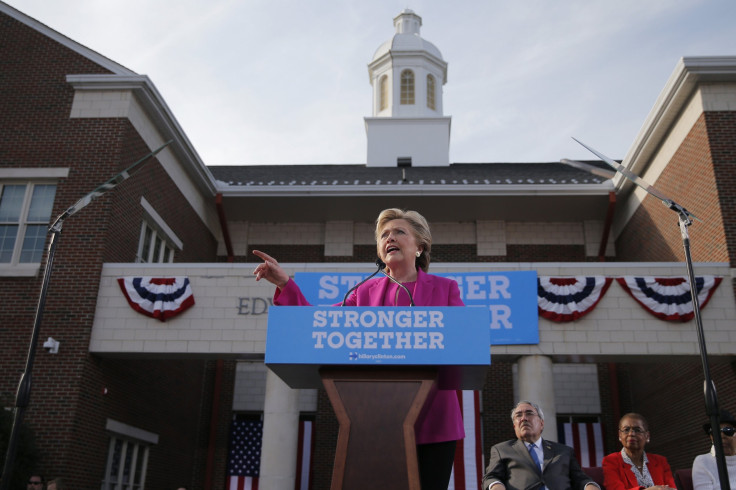Clinton WikiLeaks Update: Leaked Emails Show John Podesta Ignored Encryption Advice

U.S. Democratic presidential nominee Hillary Clinton’s campaign Chairman John Podesta was advised back in 2008 to beef up security for sensitive documents “by at least encrypting them,” the latest email dump from WikiLeaks revealed Thursday.
Podesta rose to the spotlight this election season when his personal Gmail account was hacked and its contents made public via Julian Assange’s whistleblower website.
The 2008 email chain warning the 67-year-old to improve protection for classified information came up when he was in charge of President Barack Obama’s transition team.
The email was forwarded to Podesta by Denis McDonough, Obama’s current chief of staff. McDonough first warned Daniel Tarullo, Obama’s economic adviser at the time, in a Nov. 3, 2008, email about email encryption in response to Tarullo’s memo about the upcoming G-20 meeting former President George W. Bush had called for to discuss the 2008 financial crisis.
“I was struck by the memo partly because it was first I had heard of it but much more because it was a sensitive doc bumping around on public email addresses,” McDonough wrote to Tarullo. “There is a very real threat to the security of our documents (particularly sensitive ones like the one you worked up), and we need to protect them by at least encrypting them.”
Tarullo responded: “I had never heard anything like this from either the campaign or the pre-transition effort and, in fact, have been receiving things of equal or greater sensitivity for some time from both sources. You guys are presumably much more likely to be made aware of such issues, so when the economic side of the transition gets named, you should probably get in touch with them to give guidance on this.”
McDonough then forwarded this thread to Podesta, adding: “Hey, John, I know I’m like a broken record on this, but I think we should arrange a briefing on the cyber threat for all associated with your effort.”
“We have a real security threat on our stuff here. I would gladly work up something with our techie. We’ve developed a lot of expertise in this, unfortunately,” he wrote. Talks of tightening email security surfaced as early as October 2008 when McDonough urged Podesta to “figure our security.”

Podesta, however, continued to send and receive unencrypted emails containing sensitive information, until March 2016 when his account was compromised by hackers.
Meanwhile, in an interview to be aired Saturday on the Russia-backed RT network, Assange denied Russian involvement in acquiring Podesta’s emails.
“The Clinton camp has been able to project a neo-McCarthyist hysteria that Russia is responsible for everything,” Assange reportedly said. “Hillary Clinton has stated multiple times, falsely, that 17 U.S. intelligence agencies had assessed that Russia was the source of our publications. That’s false — we can say that the Russian government is not the source.”
The published emails have made public the workings of Clinton’s campaign including other important revelations about the former secretary of state such as her support for fracking and her belief that Saudi Arabia and Qatar were supporting the Islamic State group.
© Copyright IBTimes 2025. All rights reserved.






















